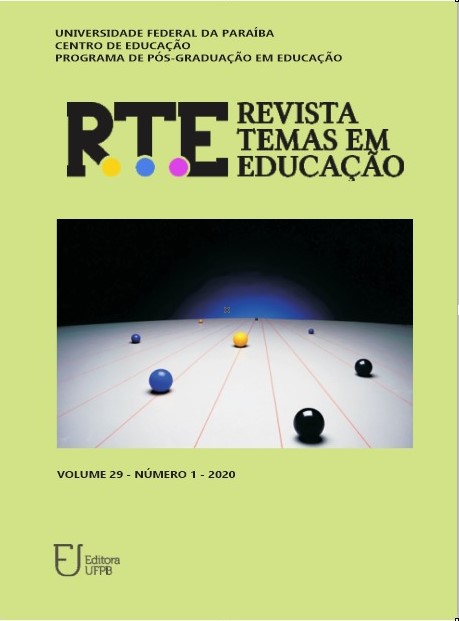THE PROFESSIONALIZATION OF HIGH SCHOOL EDUCATION ON THE BASIS OF THE NORMATIVE BODY EDITED DURING THE PERIOD OF THE MILITARY REGIME
THE PROFESSIONALIZATION OF HIGH SCHOOL EDUCATION ON THE BASIS OF THE NORMATIVE BODY EDITED DURING THE PERIOD OF THE MILITARY REGIME
DOI:
https://doi.org/10.22478/ufpb.2359-7003.2020v29n1.51645Keywords:
Secondary education, Law nº 5.692/71, Professionalization of teaching, Professional EducationAbstract
In this study we analyzed the professionalization of high school teaching during the 1970s and 1980s after the implementation of Law No. 5,692 of 1971 in the historical context of the military dictatorship established in Brazil in 1964. In the period in question, education was aligned with the demands of the market, as well as with the needs of capital, demanding minimally qualified labour to operate the national industries, but also of the transnationals that were, at this time, in a process of expansion, in the new perspective of transnationalization imposed by the process of globalisation. For this objective, we will make an analysis of the main legal norms that deal with the subject of the professionalization of the secondary education, current secondary education. This is a qualitative approach research in which we make use of documental and bibliographical analysis. The selected sources were opinions, decrees, ordinances, and laws that regulate high school education. To understand the object of study, we question ourselves: How did the professionalization of high school teaching take place through the normative set sanctioned as a result of Law No. 5692/71? The results of the research indicate that the mandatory and compulsory professionalization ofhigh school education caused adhesions and rejections and increased the structural duality of Brazilian education. A decade later, more precisely in 1982, the professionalizing character of the law was removed. This compulsory professionalization of highschool was certainly the greatest defeat of the educational policy of the military dictatorship.
Downloads
Downloads
Published
How to Cite
Issue
Section
License
Authors who publish in this journal agree to the following terms:
. Authors retain the copyright and grant the journal the right to first publication, with the work simultaneously licensed under the Licença Creative Commons Attribution that allows the sharing of the work with acknowledgment of authorship and initial publication in this magazine. . Authors are authorized to assume additional contracts separately, for non-exclusive distribution of the version of the work published in this journal (eg, publishing in institutional repository or as a book chapter), with acknowledgment of authorship and initial publication in this journal.
. Authors are permitted and encouraged to publish and distribute their work online (eg in institutional repositories or on their personal page) at any point before or during the editorial process, as this can generate productive changes, as well as increase impact and citation of the published work (See O Efeito do Acesso Livre).



















